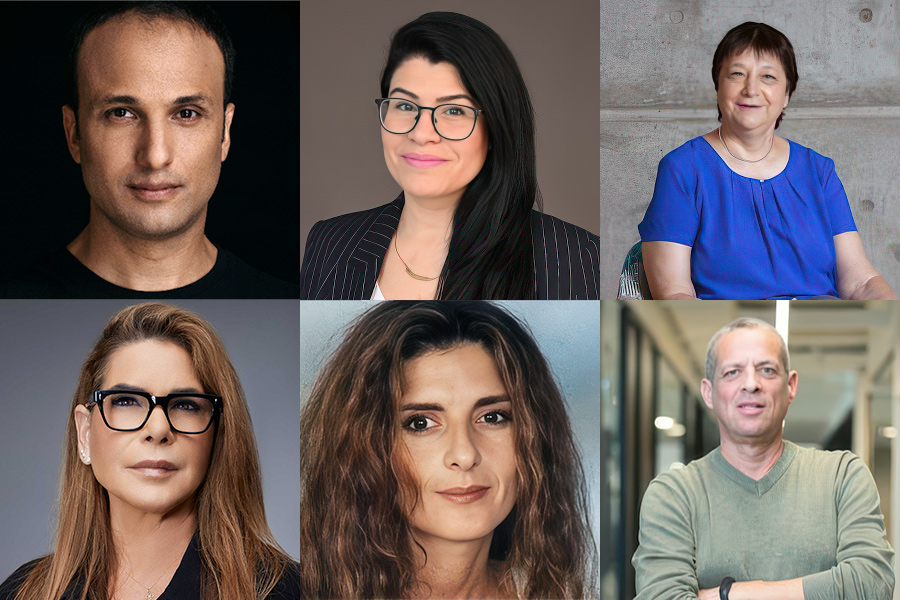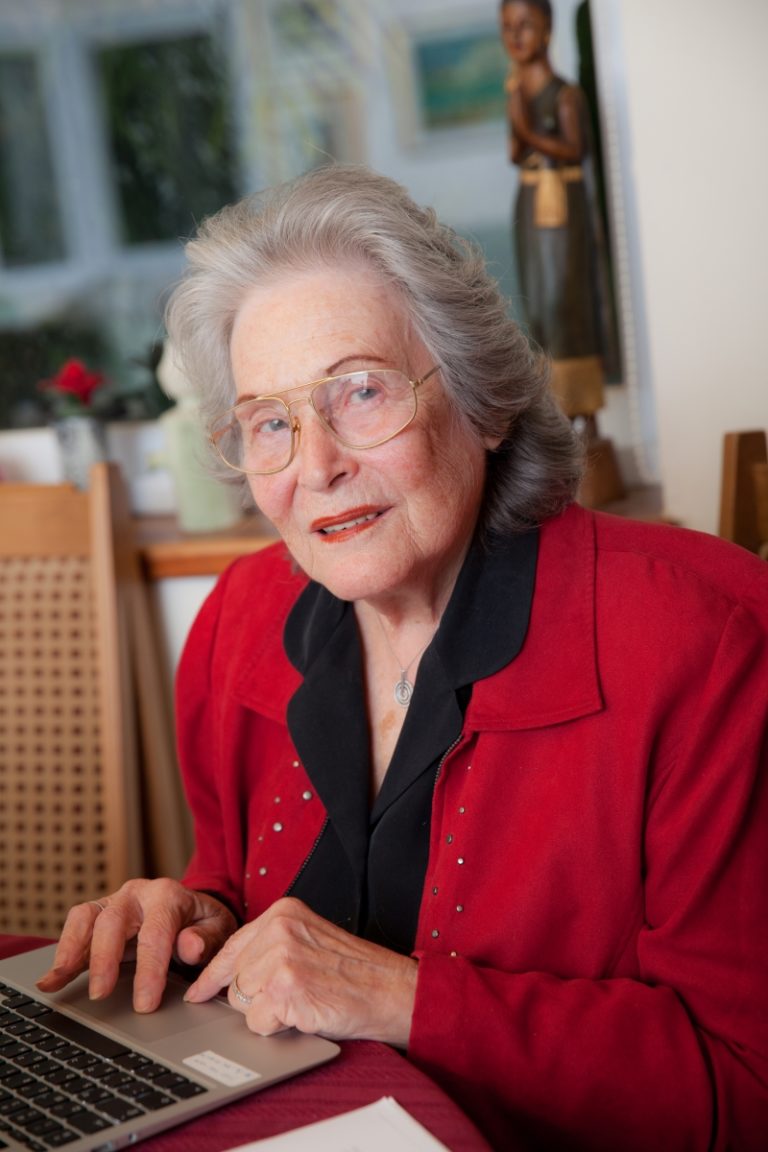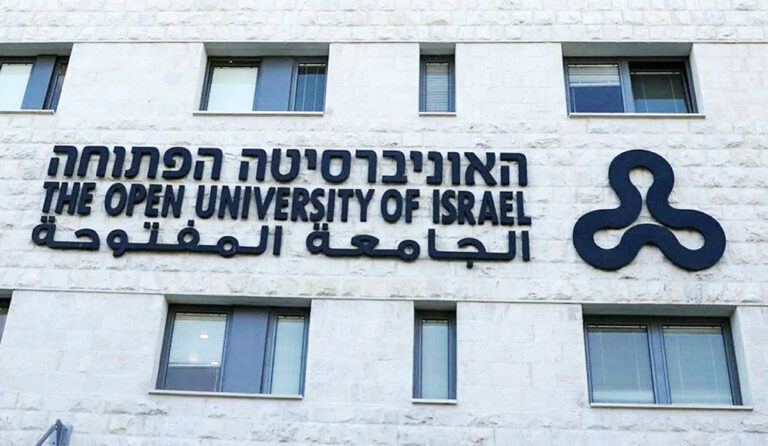Salary of Nearly NIS 50,000 for Graduates: The Surprising Data That’s Raising Questions in the Job Market

According to data from the Ministry of Labor and the CBS, Open University graduates command higher salaries and are in greater demand for prestigious fields such as computer science – surpassing both the Technion and Hebrew University. How did this unassuming institution rise to the top, and is there an alternative interpretation of these numbers?
Ela Levi-Weinrib and Meital Weisberg
February 7, 2025

Jonathan Adiri, founder of the digital healthcare startup Healthy.io, was the first to turn the smartphone camera into an FDA-approved diagnostic tool. His track record shows quite a few achievements. Among other things, he is one of the few Israelis included in Fortune magazine’s 40 Under 40 list; He was a technology advisor to the late President Shimon Peres, was chosen as one of the 100 Young Leaders of the World Economic Forum, and founded a number of start- ups that have won prestigious awards. Adiri took his first steps towards these accomplishments at the Open University, first in junior high and later in high school, when he studied for his BA in international relations at the same time as his matriculation diploma.
Adiri does not dismiss the OUI’s contribution to his path or the merit of its learning method, which has become increasingly relevant today with the hybrid revolution of working while studying.
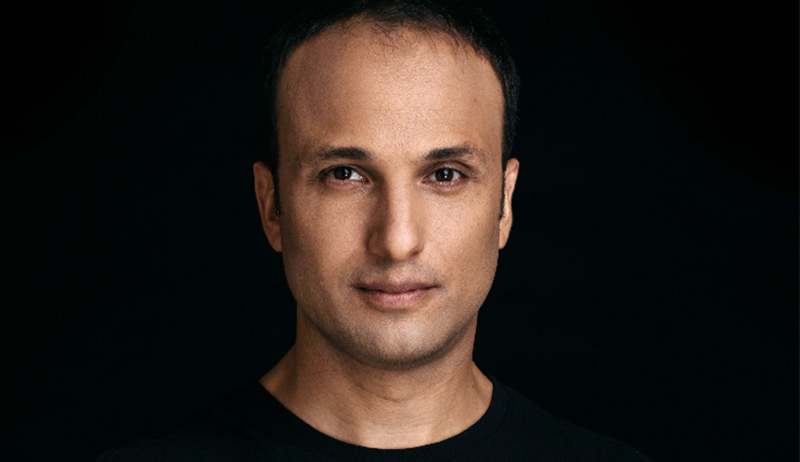
“Whoever attends the Open University knows where they are going; they have discipline and are responsible for their studies,” he says. “They can study at night and anywhere. This connects very well with developments of the past 25 years and with the knowledge economy. As the CEO of my companies, that was exactly the type of talent in the world of technology firms that I was looking for. The system doesn’t care about niceties, but about what you produce. Not only were the Open University graduates who worked in my company independent, but what mattered to them was the final product.”
Adiri is not alone. Quite a few Open University graduates are rising stars in the economy as entrepreneurs, businesspeople, and senior executives in key positions. They include Dr. Zack Dvey-Aharon, who together with Danny Margalit founded AEYE Health, which developed a product for the self-diagnosis of vision impairment; Efi Cohen, former director of the research and development center of Salesforce, who previously sold Datorama to Salesforce for $800 million; Yoni Assia, founder and CEO of eToro, an online social network for capital market trading; Alon Dori, CEO of IBI Investment House; Esti Peshin, director of the cyber division of Israel Aerospace Industries; Sigal Mannheim-Katzovich, CEO of DSV Israel; and many others.
In recent years, Open University graduates have quietly climbed to the top of the charts of the highest earners in certain professions. According Avodata (a government website by the Ministry of Labor that provides data on the labor market and major courses of study), Open University computer science graduates command the highest salaries, with an average of NIS 47,100 per month after five or six years in the marketplace – far above the Technion (NIS 42,700), Tel Aviv University (NIS 41,600) and the Hebrew University (NIS 40,100). In biology studies, Open University graduates also top the list with NIS 16,000 a month. This compares to NIS 14,700 for Tel Aviv University graduates, NIS 13,900 for Bar-Ilan and NIS 13,400 for Hebrew University and Ben Gurion graduates. The figures are based on CBS data from 2022 andreflect wages earned five or six years after graduation, i.e., those who graduated in 2016–2017.
Pioneers in distance learning
This year, the Open University began its 50th year, with a student population of 46,597 studying first, second and third degrees and diploma studies – numbers that make it the largest academic institution in the country (Tel Aviv University is in second place with about 27,000 students). About 35% of Open University students study mathematics and computer science, 22% education and psychology, 20% management and economics, 18% sociology, political science, and communication, 11% history, philosophy and Jewish studies, 9% language, literature and arts, and 8% natural sciences.
It is important to note, however, that the dropout rate is high. For example, of those who started their studies in 2014, only 49% have completed their degree as of today, as have 45% of those who started in 2015 and 41% of those who started in 2016; While 10%, 12% and 13%, respectively, are still studying towards a degree, the rest have dropped out. On average, it takes six to seven years to complete a degree at the OUI.
Over the years, the Open University has established its status and role as an institution whose mission is to make higher education in Israel accessible, anywhere, anytime and to anyone, without preconditions. There is no need for a psychometric exam, nor for matriculation. “We believe in an equal right for everyone to acquire an academic education at the highest level – without the need to present past achievements,” the university website proudly states.
Open University graduates top the list
Average monthly salary of graduates, five to six years after completing their studies, in NIS
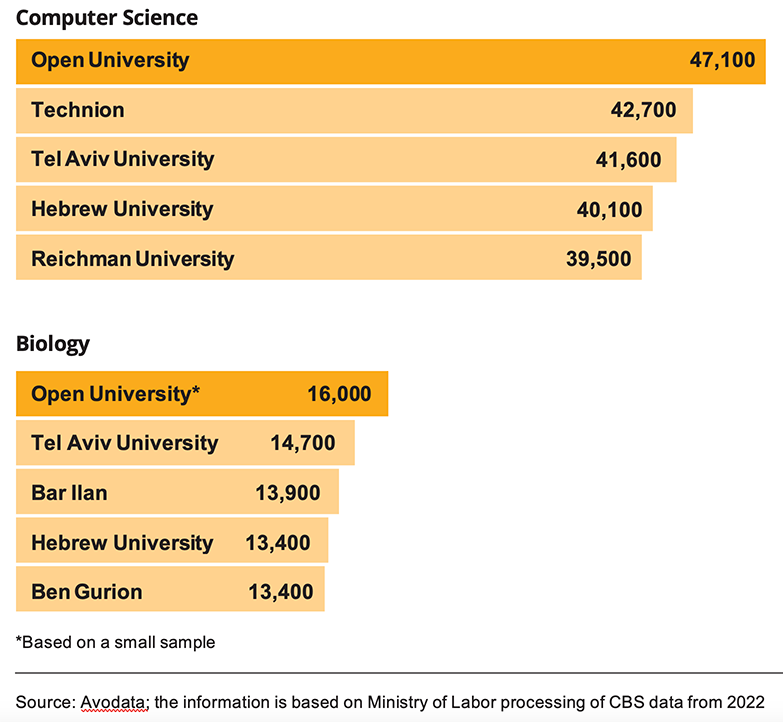
In the past, this was not always viewed positively: Some believed that the absence of matriculation or a psychometric exam as prerequisites suggested a lower caliber of students. However, the institution’s academic standards were generally not questioned by academics. For the public, Open University programs were often seen as a result of various constraints.
Mannheim-Katzovich, for example, who was born and raised in Eilat, says that when she started her studies at the Open University, it was due to a lack of choice. “After the army I returned to live in Eilat and at the time the only option for academic studies that was available in the city was a combined Open University-Ben Gurion University program.” However, even when she moved to the center of Israel she chose to continue studying there. “It allowed me flexibility. I was already working full-time, and from that point of view the Open University was the most efficient way to combine work and studies. I did my master’s degree at Tel Aviv University.”
Adiri also chose to study for his master’s degree at TAU (a research degree in political science and law). But as mentioned, his story began much earlier. “A very good teacher told my mother that, in her opinion, I was very inquisitive and she thought I should take an Open University course for junior high school,” he says. “This was a summer course based on a book by Daniel Kahneman and Amos Tversky, “Cloud of Possibilities,” and it was amazing. In the 9th grade I took a few more courses.”
His is a somewhat unusual story, about a class at the Gymnasia Herzliya high school that brought together high school students who studied at the Open University: “You [went] to school three days a week, did the minimum for matriculation and continued to an Open University degree. We were 23 students in the class; 20 studied math and computers, and I and two others studied social science or economics.” Although the program no longer exists, even back then he saw the first signs of the transformations beginning to take place in the world of studies and work. “There is a lot of talk today about the revolution of online courses, but in the nineties the Open University already had the Ofek system with satellite transmission, what today is called a podcast, and there were also tapes. As a student, there were already six or seven ways to study. It’s amazing that they thought of it then. They were really pioneers,” he says.
Qualities for the current era
Self-discipline and the ability to learn independently are perhaps part of the reason for the data showing that graduates of the Open University overtake Technion graduates in salary in some fields of technology. Another possible element is that many students begin studies already having worked and continue to study while developing their careers. In addition, changes that have taken place in the modern post- COVID-19 labor market must be considered.
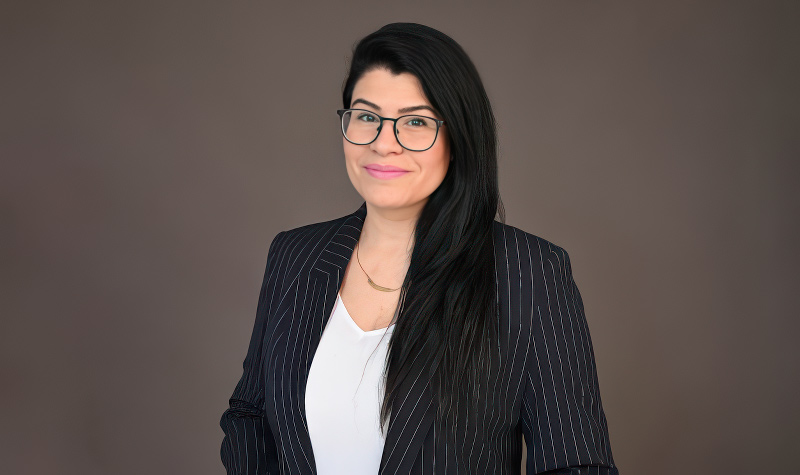
“In an era where recruitment of candidates at the beginning of their career is based on practical abilities and skills, academic knowledge alone is often insufficient in order to succeed,” says Liat Ben-Tora Shushan, VP of career management and placement at AllJobs. “From conversations with employers, it appears that Open University graduates often demonstrate ability to learn independently and deal successfully with information overload – skills that enable them to manage their time efficiently, cope with tasks, and meet tight schedules. In this sense, its graduates embody the profile of the modern worker.
“The curriculum, which is based on dealing with a large amount of study materials each semester, requires time management skills and discipline. At the same time, many of them gain work experience during their degree, so that they not only know how to handle complex tasks and stay focused under pressure, but also demonstrate flexibility. These are exactly the qualities that make them sought-after candidates for organizations looking for employees with adaptability and continuous learning skills.”
Galit Rubinstein, an occupational and organizational psychologist, adds: “First of all, the Open University is, from the outset, a framework that requires a lot of self-management, compared to regular colleges or universities. Here [students] need to know how to balance independent studies, to meet all the demands of studies and life, because on the whole, people who study at the Open University also work while doing so, so first they advance in terms of their careers and secondly, they learn how to manage themselves with a very large task load. This explains why, in terms of employment, they are in more advanced positions. And another important thing: in terms of skills for the future labor market, multitasking and the ability to conduct yourself independently and flexibly are very relevant to the changing and future world of work.”
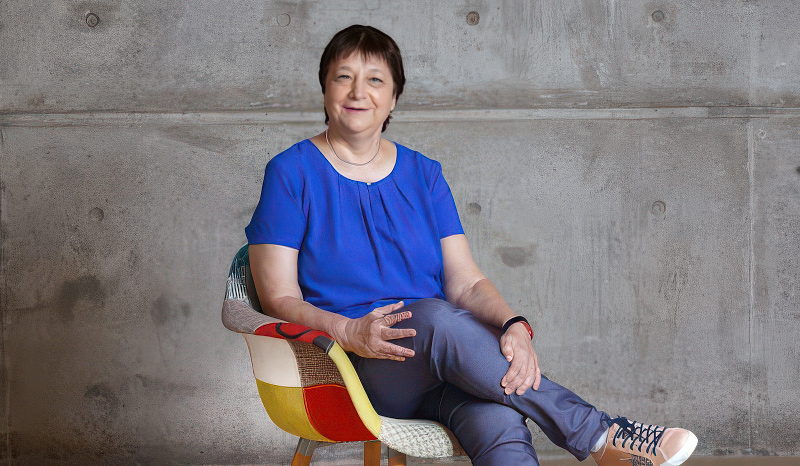
Prof. Mimi Ajzenstadt, former president of the Open University, is really not surprised by the data on graduates’ salaries. “This is not a new phenomenon,” she says. “It has been happening for several years now, and it’s a growing trend. It is due to several things – first of all, very high-level students who attend the Open University, graduates of Unit 8200 (the IDF Intelligence Corps), elite military units, and also ultra-Orthodox women who are very, very dedicated and excellent students. Another thing is really the matter of self-discipline that employers value highly today. It is very difficult to study at the Open University; there are high demands, and those who graduate have the qualities that are important in today’s job market.”
A perceptual transformation during COVID-19
Ajzenstadt adds that COVID-19 was significant in making Open University graduates more sought-after in the market. “In recent years, the subject of hybrid learning or outside studies has been legitimized. After the pandemic, distance learning suddenly wasn’t just for those who were unable to study elsewhere or didn’t have time or were unsuccessful, it became something legitimate that is found everywhere in the world, in the best universities. So it definitely affected both the students who came to study at the Open University and the perception of the graduates in the market.
“Even if other places went over to teaching using Zoom, at the Open University it’s a way of life, it’s part of our DNA, and the university knows how to do it very well. In any case, the academic level is very high; it can grant a doctorate, research students receive budgets from competitive funds, etc.”
Adiri believes that “its success stems from the compatibility between decisions made in the nineties and the transformation of the Israeli economy and the knowledge economy. When these two processes happened at the same time, this had a very large impact on the university. When you have an Open University but an industrial economy, it doesn’t help you – but when you are highly consistent with the structure of the economy, then there is a tremendous advantage to the Open University method.”
Another value, according to Adiri, is the fact that at the Open University, the students’ results speak for themselves, not their identity or the help and support they receive. “This is the closest institution to a meritocracy, because the content speaks for itself. You write a paper. The lecturer has never seen you, he only judges your work and there are no tutors. I think it’s amazing. It doesn’t matter who you are. This is the place that educates you to focus on the value you create. From this point of view, the Open University has done something amazing – it has made conditions more flexible for populations such as ultra-Orthodox women, who do not have to come into school and can preserve their way of life and integrate learning within it.”
Data that is met with surprise
Has the underdog of academia truly surpassed Israel’s most prestigious universities in its ability to create value—evidenced by significantly higher salaries for its graduates? Not everyone is convinced that this is an accurate depiction.
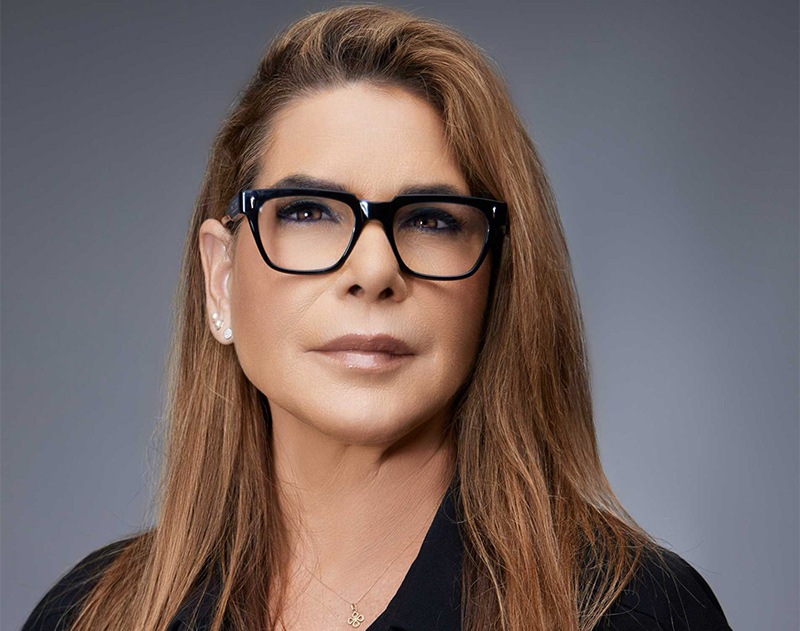
Rinat Nahum, CEO and owner of an executive placement company which recruits employees for a variety of positions in technology and other companies, says that she does not see in practice what the Ministry of Labor’s data shows. “When I receive resumes from graduates of software engineering or another degree in the Faculty of Computer Science – there is no question at all for me: it is clear beyond any doubt that graduates of the Technion or the Hebrew University or Tel Aviv University deserve a higher salary. This is reflected when they reach the employers,” she says.
“The conditions for admission to these universities are very, very difficult and complex and not everyone passes them. The exams are also more difficult and in all the papers and academic requirements the environment is very competitive. It’s not that you sit alone in the living room and prepare papers. In addition, on the whole, statistically, people go to university after the army, and this is not necessarily true for graduates of the Open University; Unit 8200 veterans do not study at the Open University, but at the top universities. Only a few go to the Open University.”

Orna Rudi, a career management consultant and labor market expert, agrees with Nahum. “It is important to say that the Open University is a good academic institution, better than three or four universities in Israel (Reichman, Ariel, Haifa or even Bar-Ilan), not to mention all the colleges. However, the claim that its graduates earn the highest salaries in the economy, particularly in computer science, seems unlikely—and it’s easy to prove. How? By checking their prevalence in the leading companies, and this is because the most expensive employees are the ones who are perceived as the best, and therefore also the most in demand,” she says and explains: “Let’s take for example the computer science graduates who work at Google, which is the leading indicator of the quality of software companies. According to LinkedIn, (with the exception of the University of Haifa), the number of software engineers who graduated from the Open University working at Google (66) is dramatically lower than those from all the other universities (Technion – 291, Tel Aviv – 281, Beer Sheva – 141 and the Hebrew University – 135). This is despite the fact that the highest number of computer science graduates in Israel is from the Open University.
“Even in other technology companies, the number of Open University graduates is low compared to leading universities (for example, Facebook, Microsoft, Check Point, etc.). This is completely inconsistent with the finding that they earn the most and are the most sought-after.”
Is the comparison correct?
Nahum does agree that there has been a change in perception following the COVID-19 pandemic. According to her, “Students who went to the Open University, regardless of their level of intelligence or wisdom, either worked full time and were unable to commit to studying for three years, or were short of money, because the Open University was cheaper. As recruiters, before the COVID pandemic, when we saw that someone came from the Open University, we didn’t know whether they had studied there because they were not accepted by leading universities or through choice, because usually it was due to necessity or constraint. It was neither Reichman nor Tel Aviv University nor the Technion.
“What happened after the pandemic is a completely different story, because then we actually realized that someone who is able to sit on their own and spend time on Saturdays and works alone on Zoom and listens to lectures on the computer and all that – is someone who can really excel in their ability to ignore background noise and deal with it. We realized that anyone who can learn using a hybrid method has a kind of genius. COVID gave it the legitimate infrastructure.”
Nevertheless, she argues that graduates from other universities still lead in terms of employer demand and the salaries they command. “I can say unequivocally, and I take responsibility for it, that graduates of information systems, software engineering and computer science from the Technion, Reichman, Tel Aviv University, Bar-Ilan, Ono Academic College and Rishon Lezion [the College of Management Academic Studies], receive a higher salary than those who studied in their free time over a period of five to six years at the Open University.”
So how can the Avodata website data be explained? It is possible, says Nahum, that they are not based on a true comparison. “If someone has studied for seven or eight years while working, and this happens at the Open University, then it makes sense that they will receive a higher salary at the end of their degree, because they are both gaining experience and creating their own occupational evolution, and they can work and progress from a developer to a team leader and from a team leader to a department manager, so it is irrelevant that they studied at the Open University They receive their salary while working, and if they started working for a certain company and at the same time studied for seven years, their salary is based on their development in the workplace and not on the fact that they studied at the Open University.”
“That’s why I don’t think they earn more if a true comparison is made. They generate higher earning capacity when they combine their studies with their occupational development. The published data should be examined from the point of view of how long it takes them to complete their degree. That’s the catch. I receive quite a few resumes from people who write to me: ‘I have started studying at the Open University and I haven’t finished yet.’ They started in 2018 and haven’t yet graduated, but they work at Microsoft and earn a lot of money.”
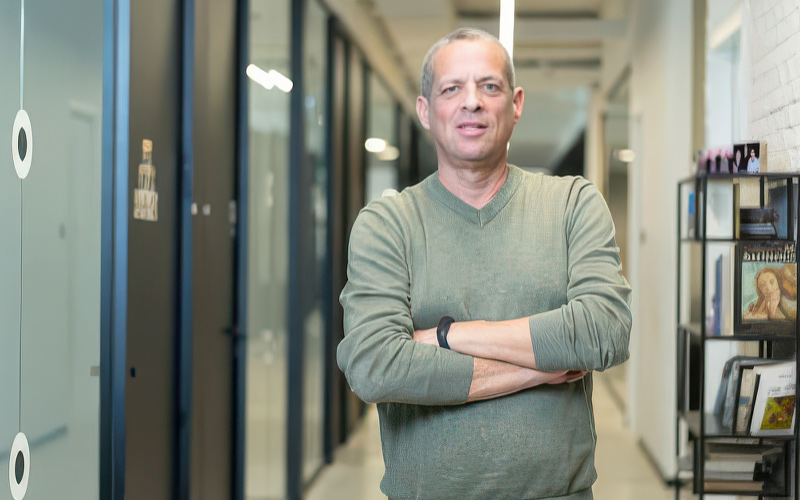
Alon Reiter, VP of Human Resources at the Aman software group (and holder of a bachelor’s degree from the Open University), agrees that despite the advantages he identifies in Open University graduates, they are not the most sought-after in the market. But he also has a possible explanation for their salary levels.
“We recruit more than 500 people a year, so I interview a lot of people, and I don’t have a policy of favoring the Open University, but I definitely see and recognize the advantages, not only because of hybridity, but because I know that whoever has completed a degree there is someone with much higher self-discipline than an ordinary person. These are people who need and know how to build their system, direct themselves and finish their degree.
“I can say that, at least in computer science, Technion graduates are still very much in demand, followed by Hebrew University graduates and then Tel Aviv University – these are considered the leaders. After that, I personally really like graduates from Reichman, which gives students a lot of practical and not just theoretical tools, and after that the Open University.”
So how do you explain the data that shows that Open University graduates earn more than graduates of the Technion and other institutions?
“It makes sense when it’s not a first salary. The data measures a period of five to six years. This happens, among other things, because many graduates of the Open University study for their degrees while working, and so when they graduate, they are no longer juniors and are no longer being recruited for their first job in the field, where you start with a lower salary.”
Meir Bing, CEO of the Open University, agrees that there is a chicken-and-egg question regarding the characteristics of the students who initially graduate with an Open University degree: “In recent years, the best students in Israel have come to us from high schools and from elite army units such as Unit 8200. The high salaries recorded for our graduates is partly a consequence of this. Okay, that’s obvious. They have high salaries because they’re good, I agree.” On the other hand, he points out that “the best students also go to the Hebrew University and the Technion.”
Bing offers an explanation for the differing perspectives of Nahum and Rudi. According to him “The increase in Open University computer science graduates is recent. There has been a threefold increase in the last five years. Until then, we only had very few. Usually, headhunters do not recruit for junior positions but for the levels above, so naturally today there are fewer of our graduates at higher levels.”
Translated from Globes:
www.globes.co.il/news/article.aspx?did=1001501360

